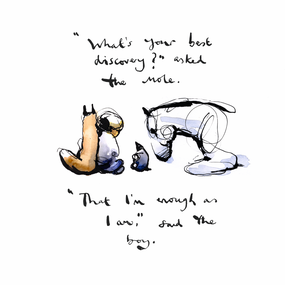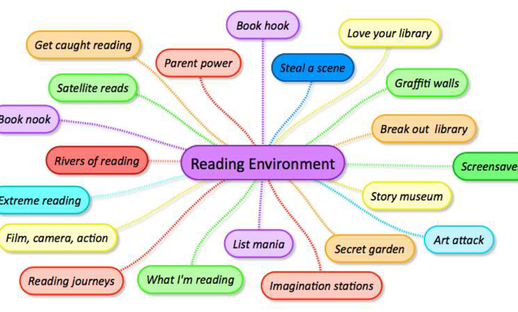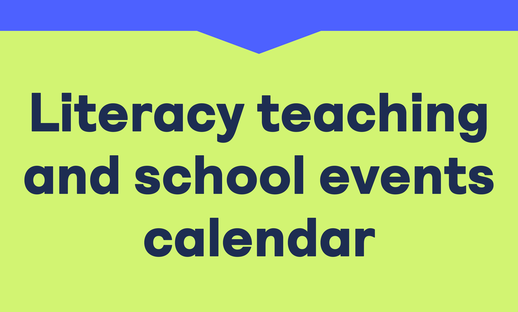
We partnered with Penguin Random House UK and Charlie Mackesy to create KS1/P2-3 and KS2/P4-P7 cross-curricular literacy and PSHE resources to help you mark Children's Mental Health Week.
What is Children’s Mental Health Week?
Children’s Mental Health Week will take place from 3 to 9 February 2025, with the theme of Know yourself, grow yourself. This annual event was set up by children’s mental health charity Place2Be and shines a spotlight on the importance of children and young people’s mental health.
Resource aims
The assemblies and lesson plans provide pupils with the opportunity to read and explore Charlie Mackesy’s book The Boy, the Mole, the Fox and the Horse and reflect on themes of mental wellbeing through the characters and events in the text. The resources aim to promote and foster reading for pleasure and book-based discussion, whilst also linking to themes around health and wellbeing from within the PSHE Association's programme of study.
What's included in the resources?
For KS1/P2-3
A whole-phase assembly and follow-up literacy and PSHE lesson plan - pupils will explore what mental wellbeing means and reflect on the ways the characters in the book look after their own wellbeing. Our KS1 resources focus on the importance of celebrating differences. Pupils will think about what makes themselves and their peers special, and how this can promote positive wellbeing. The main activity in the lesson provides the opportunity for pupils to create their own sketches that celebrate themselves, inspired by Charlie's beautiful illustrations.
For KS2/P4-7
A whole-phase assembly and follow-up literacy and PSHE lesson plan - pupils will explore what mental wellbeing means and reflect on the ways the characters in the book look after theirs. Our KS2 resources invite pupils to reflect on how Charlie's characters think and talk about emotions, exploring the different ways that emotions can manifest. The main activity in the lesson provides the opportunity for pupils to interpret meaning behind some of Charlie's powerful illustrations and to discuss their interpretations with each other.
How does Children’s Mental Health Week link with literacy?
We’ve long known that a love of reading and writing can help children flourish at school and go on to succeed at work and other ventures in life. But we now know that reading and writing for enjoyment can also play a vital role in helping children lead happy and healthy lives. In 2018, our research found:
- Children who are the most engaged with literacy are three times more likely to have higher levels of mental wellbeing than children who are the least engaged (39.4% vs 11.8% Clark & Teravainen-Goff, 2018)
In our Annual Literacy Survey, we asked children and young people aged 8 to 18 to reflect on the reasons why they read.
- 3 in 5 (59.4%) children and young people told us that reading helped them relax
- Nearly 1 in 2 (46.0%) said reading made them feel happy
- 3 in 10 said reading made them feel more confident (29.8%) or helped them deal with problems (27.3%)
Find out more in our Reading for Mental Wellbeing report
More useful resources
- Explore our collection of ideas and inspiration for supporting wellbeing through literacy teaching
- Developed with Place2Be we have assemblies that build on the link between reading, writing and wellbeing
Ideas for Children's Mental Health Week at home
- Visit our family-facing site Words for Life for activities and ideas to support your child's mental wellbeing at home.
Download files
You might also be interested in
-
Premium
These resources for primary teachers provide practical tips and ideas for inspiring a vibrant whole-school reading environment.View details about Developing a whole-school reading environment for primary schools -
Premium
This comprehensive guide to research and policy developments in primary literacy designed to help you develop evidence-based, sustainable literacy practices.View details about Primary Literacy Guide and Review -
Free
Supporting schools and early years settings with literacy teaching resources to help enrich your lessons linking to literacy moments and awareness days throughout the academic year.View details about Literacy teaching and school events calendar 2025-2026


